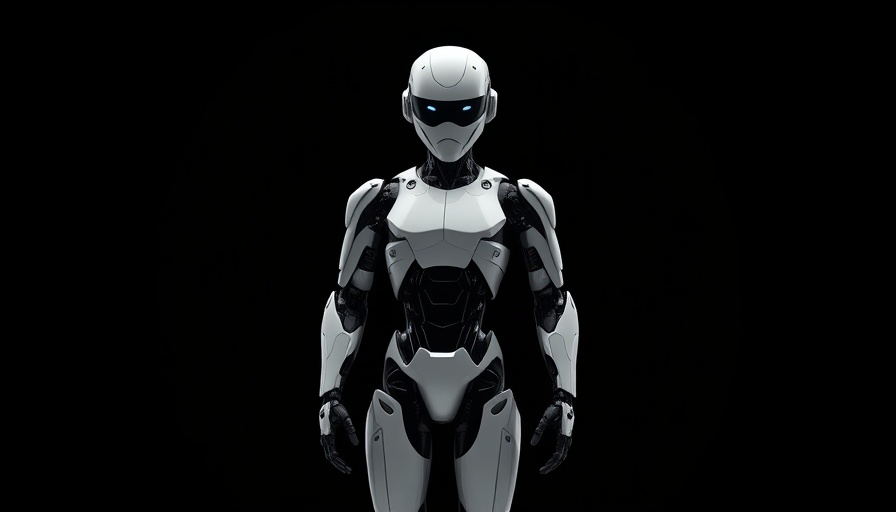
Tesla's Legal Battle Over Trade Secrets: What's at Stake?
Tesla Inc. has launched a significant legal battle, accusing a former engineer, Zhongjie 'Jay' Li, of stealing trade secrets related to their advanced humanoid robot program, Optimus. The lawsuit filed in San Francisco's Federal Court claims that Li misappropriated confidential information and leveraged it to create a rival startup, Proception Inc., within mere weeks after leaving his position at Tesla. This incident raises critical questions regarding trade secret protection and the ethical boundaries engineers must navigate when transitioning to new ventures.
The Timeline of Events: How Did This Unfold?
Li worked at Tesla from August 2022 until September 2024, focusing on advanced robotic hand sensors for the Optimus project. Tesla's complaint details that in the days leading up to his departure, Li allegedly downloaded sensitive data onto two personal smartphones. The timing of his actions was particularly notable; just days after departing from Tesla, he incorporated Proception, claiming to develop humanoid robotic hands similar to the designs he worked on while employed at Tesla. This swift transition has raised eyebrows and concerns within the tech industry about the integrity of intellectual property.
What Does This Mean for Tesla's Future?
Tesla CEO Elon Musk has emphasized that the long-term value of the company may rest on the success of the Optimus robot. With grand plans for Optimus to automate tasks ranging from factory work to everyday chores, any disruption caused by this lawsuit could impact Tesla's operations and innovation roadmap. Musk described the Optimus hand as 'the most sophisticated hand ever made,' underscoring the weight of this lawsuit in the context of technological advancement in robotics.
Legal Implications of the Case
The lawsuit highlights important legal principles regarding trade secrets in technology. Under California law, trade secrets are defined as information that is not generally known, provides a business advantage, and is subject to reasonable efforts to maintain its secrecy. Tesla's legal representatives claim that Li's actions not only constitute theft but also represent a calculated attempt to undermine Tesla’s significant investments in research and development.
How Does This Fit into Current Industry Trends?
This lawsuit occurs amidst a growing trend of tech companies battling over intellectual property as innovation accelerates in the robotics and AI sectors. High-profile disputes over trade secrets can threaten the entire foundation of tech innovation, creating an environment where trust and ethical standards are paramount. As companies develop cutting-edge technologies, they must carefully manage how sensitive information is shared with employees and the exit processes to avoid similar pitfalls.
Reflections on Ethics and Integrity in Technology
The case against Li isn't just about lost information; it embodies a broader conversation about ethics in technology. As professionals navigate their careers, the lines can blur when it comes to proprietary knowledge. This incident serves as a crucial reminder for employees in tech—particularly engineers and developers—about their responsibilities to their employers and the potential consequences of actions that may seem innocuous but could lead to significant legal ramifications.
Conclusion: Guarding the Future of Innovation
The outcome of Tesla's lawsuit will likely set important precedents in the tech industry regarding how companies protect their secrets and ensure their technologies remain unique. As the robotics field expands, so too will the complexities of protecting intellectual property. Ultimately, this lawsuit isn't merely about one engineer; it symbolizes the challenges and responsibilities entwined within the rapidly advancing world of technology.
 Add Row
Add Row  Add
Add 



Write A Comment